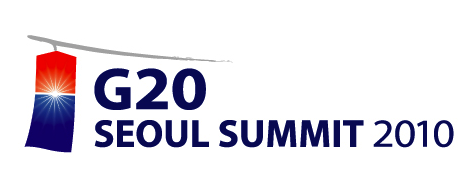WASHINGTON—The European Union's offer to give up two seats on the International Monetary Fund's board is unlikely to gain approval at the annual IMF meeting next week, but it could be a template for a temporary compromise.
If the Europeans commit to a more substantial overhaul within two years, a modified version of the EU proposal may allow leaders of the Group of 20 nations meeting in November to claim progress on an issue seen as essential for maintaining the legitimacy of the international institution.
EU finance ministers on Friday approved a proposal that would share with emerging nations two of the continent's eight executive-director seats on a rotating basis among the smaller European countries. The board currently has 24 seats. The offer is part of a package that would share the burden of governance reform among other rich countries, prevent further restructuring and allow Europe to maintain power through alternate executive-director appointees.
"This is essentially a cosmetic proposal because it only offers marginal changes," said Dominico Lombardi, a former IMF board member and current president of the Oxford Institute for Economic Policy. "I am skeptical this will really fly with the U.S.," he said.
Homi Kharas, a senior fellow at the Brookings Institute and former World Bank economist, said a number of the provisions in the EU proposal are too contentious for it to be seriously considered. "Given the complexities and politics ... it could be difficult to conclude a [lasting] compromise during the meetings next week," he said. The G-20 may be a more likely gathering for the final agreement to be reached, he added.
The current IMF executive-board representation and quota structure is based on a post-World War II snapshot of the global economy. The board runs the day-to-day operations and the quota—based on economic weight and a number of other factors—determines countries' financial contributions and voting power.
But given the rise of emerging nations such as China, India and Turkey in the past several decades, the U.S. and developing economies are calling for a fundamental restructuring of the IMF's governance. The issue has been championed by Washington at the G-20 meeting as an attempting to draw developing nations into greater participation in an integrated world economy. For example, developing countries are less likely to contribute to the G-20's Mutual Assessment Process run by the IMF, a core program designed to stabilize the global economy, if those nations don't believe they have proportional representation. It would also help lubricate discussions on a host of other sensitive trade and economic issues.
Having largely ignored the issue, Europe has faced increasing pressure to act. The U.S. escalated tensions in August by hindering a vote that would maintain the current 24-member executive board, an attempt to break a diplomatic impasse.
Officials at the U.S. Treasury declined to comment on the proposal. But Treasury Secretary Timothy Geithner told Congress late last month that Europe's representation is disproportionate to its relative economic strength and the U.S. was seeking a major reorganization.
IMF Managing Director Dominique Strauss-Kahn said earlier this past week that given the over-representation of Europeans on the board, it was "only fair" that they "make room" for emerging countries.
EU envoy to the U.S., Joao Vale de Almeida, rejects the idea that Europe has more than its fair share of representation or that a solution meant "Europe has to pay all the price for the changes."
"Compromise has to be a balanced one. ... We don't think it should be based on presumption that there is European over-representation," Mr. Vale de Almeida said.
Eswar Prasad, a Cornell University economist and former head of the IMF's China department, said the EU's proposal is designed to ensure that countries share the pain of restructuring.
Even though European officials are no longer calling for the U.S. to lose its veto power on the board, Mr. Prasad said negotiating stances on both sides are hardening, indicating a possible stalemate. "But I think the more likely outcome is that eventually cooler heads will prevail and some compromise will be struck," he said.
Besides dropping some of the controversial provisions in the EU's offer, an accord would likely see modest temporary board overhaul—perhaps two seats on a rotating basis—based on a promise of substantial restructuring within two years, say both Messrs. Prasad and Lombardi.
For example, Turkey, Poland or South Korea could replace executive--director seats currently occupied by Belgium, the Netherlands or Denmark until there is an agreed-on consolidation of European bloc seats.
The two-year time-frame would allow quota reform to be implemented and a realignment of constituencies. In an illustration of the current constituency jumble, which groups 187 members under 24 seats, Switzerland represents five Central Asian nations, Poland and Serbia.
A 5% shift of quota from over-represented countries to under-represented countries, and a doubling of the financial contributions, will likely be approved next week, allowing a recalculation of how countries should be represented on the board.
That would pave the way for the more fundamental board reshuffling later.
"The annual meetings will still provide a final chance for Europe to be perceived not as an obstacle but as a pro-active actor in this discourse," said Mr. Lombardi.
Write to Ian Talley at ian.talley@dowjones.com

댓글 없음:
댓글 쓰기